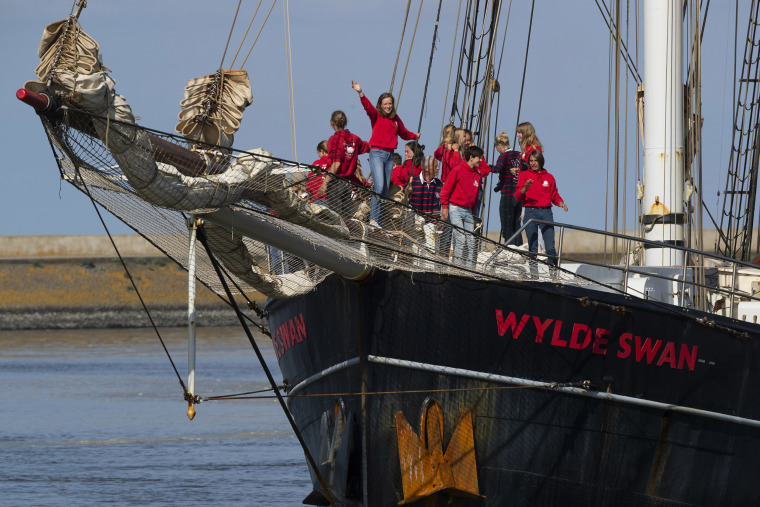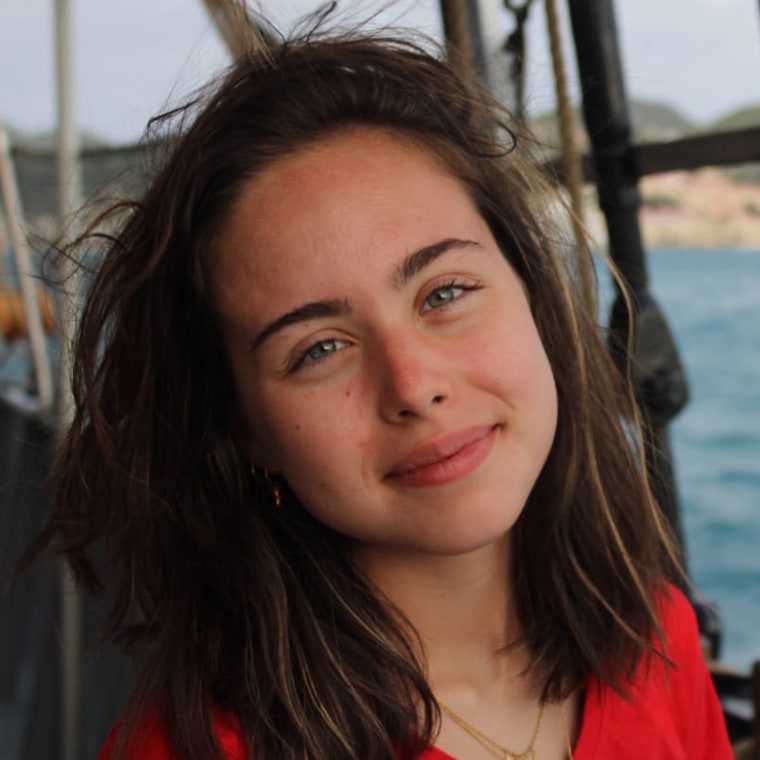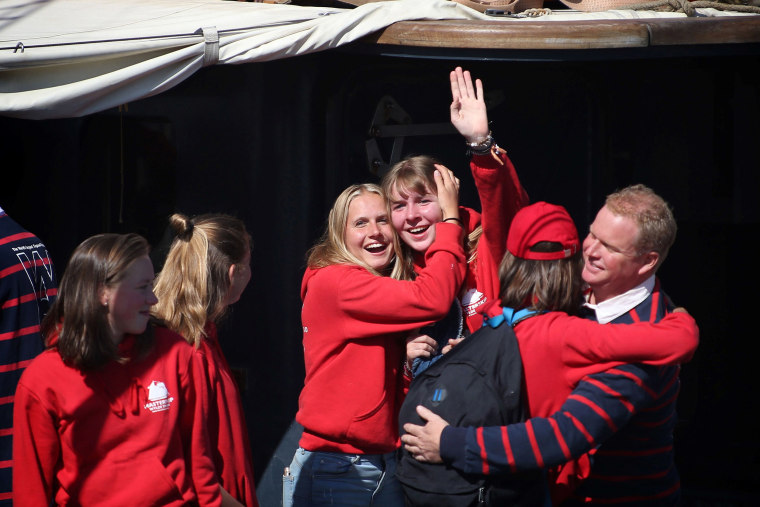A group of teenagers sailed 4,500 nautical miles across the Atlantic because they feared coronavirus restrictions would prevent them from flying home to the Netherlands.
"It was really scary because before that we had been making jokes like, 'Oh, we can always cross the Atlantic if necessary,' but it was more like a joke," said Isabella van den Hout, 16, after they docked in the Dutch port of Harlingen on Sunday. "And then it became a reality."
The 24 students, aged 14 to 17, had planned to spend six weeks sailing the Wylde Swan — the biggest topsail schooner in the world — around the Caribbean, learning nautical skills as well as traditional academic subjects, from the 12 adult crew members and four teachers accompanying them.
But two weeks into their trip, governments in the region began imposing travel restrictions to tackle the coronavirus pandemic, closing ports and air space.
The group had originally planned to fly home to the Netherlands from Cuba. But fearing their boat would be prevented from docking by the time they arrived, the program organizers and crew decided to change plan and sail home instead.

"Sometimes the best solution is the one closest to you," said Christophe Meijer, Director of the Wylde Swan and Masterskip's study-at-sea program, which organized the trip. "You look at the difficult options, and then you realize you’re sitting on an ocean in a sailing vessel."
The Wylde Swan and its crew cross the Atlantic twice a year, but neither the vessel nor its trainee sailors were prepared for what would be a five-week nonstop voyage across the ocean.
After completing several weeks' worth of preparation in just six days, the ship was fueled, stocked with food and supplies and checked to make sure it was ready for a transatlantic voyage.
As they had packed for a tropical vacation, finding enough warm clothes for two dozen teenagers to cross the Atlantic in April, on the day before the island of St. Lucia went into lockdown, proved the biggest challenge. But eventually they managed to find what they needed.
Life on the voyage followed a strict routine of schoolwork, sailing training and "happy hour" periods of after-lunch chores. Three weeks in, supplies of fresh food dwindled, and the ship's occupants had to spend several days without showering when its fresh-watermaker needed repairing.
With no internet on board, updates from the outside world came from one daily briefing message via satellite.
Now back at home in the small Dutch town of Bussum, van den Hout said: "You don’t really know if everybody is still okay. You leave one lifestyle and could come back to something really new."
Her mother, Maria Santos, 51, said she was never worried for her daughter's safety, as "the parents were kept constantly informed."
Despite the challenges, Isabella said the group had enjoyed the sense of community.
"When sun was rising or going down and everybody was sitting together, we didn’t have to say anything. It was really cosy," she said.

Sara Verheijen, 31, one of the teachers aboard, said she believed the experience prepared her students for life under lockdown, because they had not been able to plan anything and the situation "wasn't in their control."
"That’s the lesson everybody in the world is learning right now," she added. "It made the kids really flexible in the end."
For van den Hout, the change of plan was the best possible outcome.
"I think I have a really cool story to tell to my grandchildren: that I was crossing the ocean while others were sitting home being bored," she said.

